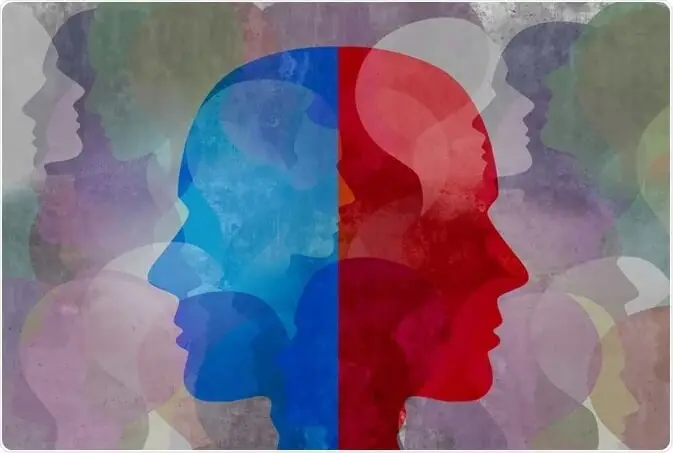Schizophrenia

Schizophrenia is a serious mental illness that interferes with a person’s ability to think clearly, manage emotions, make decisions and relate to others. People with schizophrenia may seem like they have lost touch with reality, which can be distressing for them and for their family and friends.
The symptoms of schizophrenia can make it difficult to participate in usual, everyday activities, but effective treatments are available. Many people who receive treatment can engage in school or work, achieve independence, and enjoy personal relationships. People with schizophrenia are usually diagnosed between the ages of 16 and 30, after the first episode of psychosis.
Starting treatment as soon as possible following the first episode of psychosis is an important step toward recovery. It is therefore important to recognize the symptoms of schizophrenia and seek help as early as possible.
Schizophrenia symptoms
Symptoms can differ from person to person, but they generally fall into three main categories: psychotic, negative, and cognitive.
Psychotic symptoms
Include changes in the way a person thinks, acts, and experiences the world. People with psychotic symptoms may lose a shared sense of reality with others and experience the world in a distorted way. For some people, these symptoms come and go. For others, the symptoms become stable over time. Psychotic symptoms include:
Hallucinations:
When a person sees, hears, smells, tastes, or feels things that do not exist. Hearing voices is common for people with schizophrenia. People who hear voices may hear them for a long time before family or friends notice a problem.
Thought disorder:
Thoughts and speech are disorganized or illogical. Sometimes a person will stop talking in the middle of a thought, jump from topic to topic, or make up words that have no meaning.
.
Delusions:
False unshakable belief, not based on reality and may seem irrational to others. For example, you think that you’re being harmed or harassed; certain gestures or comments are directed at you or there is a conpsiracy against you.
Unusual movements and postures:
When a person exhibits repetitive purposeless movements. It can also include catatonic behavior, where a person might hold a certain pose (even an uncomfortable one), not respond to people speaking to them or might start moving around excessively for no obvious reason.
Negative symptoms
Include lack of motivation, loss of interest or enjoyment in daily activities, withdrawal from social life, difficulty showing emotions, and difficulty functioning normally. Negative symptoms include:
- Having trouble planning and sticking with activities, such as grocery shopping
- Having trouble anticipating and feeling pleasure in everyday life
- Talking in a dull voice and showing limited facial expression
- Avoiding social interaction or interacting in socially awkward ways
- Having very low energy and spending a lot of time in passive activities. In extreme cases, a person might stop moving or talking for a while, which is a rare condition called catatonia.
Cognitive symptoms
Include problems in attention, concentration, and memory. These symptoms can make it hard to follow a conversation, learn new things, or remember appointments. Cognitive symptoms include:
- Having trouble processing information to make decisions
- Having trouble using information immediately after learning it
- Having trouble focusing or paying attention.
Treatment of Schizophrenia
People with schizophrenia require lifelong treatment, even when symptoms have subsided. Early treatment may help get symptoms under control before serious complications develop and may help improve the long-term outlook.
Current treatments for schizophrenia focus on helping individuals manage their symptoms, improve day-to-day functioning, and achieve personal life goals, such as completing education, pursuing a career, and having fulfilling relationships.
Antipsychotic Medications
Medications are the cornerstone of schizophrenia treatment, and antipsychotic medications are the most commonly prescribed drugs.
The goal of treatment with antipsychotic medications is to effectively manage signs and symptoms at the lowest possible dose. Antipsychotic medications can help make psychotic symptoms less intense and less frequent. These medications are usually taken every day in a pill or liquid forms. Some antipsychotic medications are given as injections once or twice a month or once every 3 months.
Psychosocial Interventions
Once psychosis recedes, in addition to continuing on medication, psychological and social (psychosocial) interventions are important.
Psychosocial treatments help people find solutions to everyday challenges and manage symptoms while attending school, working, and forming relationships. These treatments are often used together with antipsychotic medication. These may include:
- Individual therapy. Psychotherapy may help to normalize thought patterns. Also, learning to cope with stress and identify early warning signs of relapse can help people with schizophrenia manage their illness.
- Social skills training. This focuses on improving communication and social interactions and improving the ability to participate in daily activities.
- Family therapy. This provides support and education to families dealing with schizophrenia.
- Vocational rehabilitation and supported employment. This focuses on helping people with schizophrenia prepare for, find and keep jobs.
Hospitalization
During crisis periods or times of severe symptoms, hospitalization may be necessary to ensure safety, proper nutrition, adequate sleep and basic hygiene.
This information is not intended to replace advice given to you by your health care provider. Make sure you discuss any questions you have with your health care provider.

